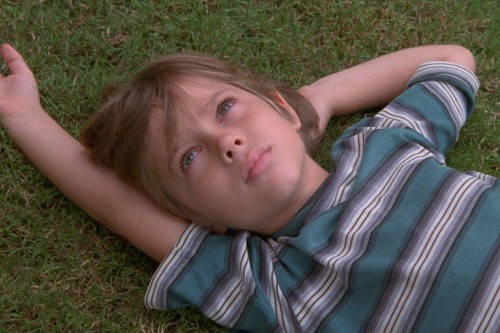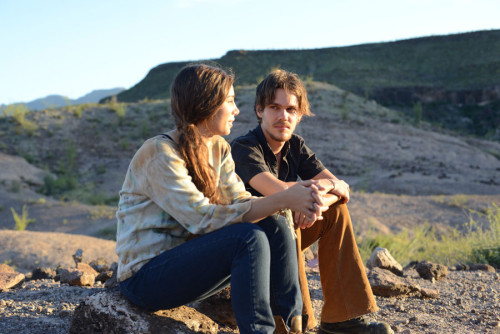Boyhood
Richard Linklater is one of the great writer-directors when it comes to examining the human condition. I was a big fan of the Before series (Before Sunrise (1995), Before Sunset (2004), Before Midnight (2013)) which examined the relationship between two people as it developed over the course of their lives (and in real-time, it seems). Filmed with the same cast over the course of 12 years, and examining the life of a boy growing up, Boyhood seems like a natural extension of Linklater’s previous projects.
Similarly to the Before series, the writing is very real. Real in the sense that it doesn’t conform to standard (often dangerous) hollywood clichés, or stereotypes of how families or relationships are supposed to be. This is still-life, but in motion picture form. Apart from making the film unpredictable, it also makes the characters much more relatable. It takes a certain suspension of disbelief to relate to a character on screen with model good-looks, perfect dance moves, and pinpoint marksmanship, but it’s much easier to see yourself in the shoes of the housewife struggling to make ends meet, or in the crosshairs of the hot-tempered alcoholic stepfather, or even the teenager struggling with their identity while growing up and moving around within the country frequently.
The performances are outstanding, and Patricia Arquette’s realisation of the mom is especially so. What struck me was how consistent the characterisations were, when you consider that scenes were often shot years apart. The awkwardness and tension at the dinner table during a family conflict was palpable, and not since Blue is the Warmest Colour, has a film connected and moved so many emotions in me so effectively. The bottom line is that this is real life, it’s not a fairy tale, or some strange unusual situation (my daughter’s been kidnapped, I have a particular set of skills, etc.), this is what real life is, and perhaps its a bit narcissistic that all the greatest literature and art does this, but the film excels precisely because it examines the human condition.
This is still-life, but in motion picture form.
Despite being a little bit choppy editing-wise at the start, the story moves seamlessly and you watch the characters grow old right before your eyes. To have conveyed the passage of life and time so effectively on screen has earned Boyhood a nomination for best directing, editing, as well as best writing – all awards which I think it deserves. I don’t, however, think it will win best picture. Dialogue-heavy films which describe the mundane rarely win. I mean, the story is far from mundane, but it is not unusual or outstanding in any way. Perhaps the academy is more of the philosophy that films are an escape from our everyday lives, while Boyhood seems to examine and celebrate the beauty in imperfection in our everyday lives.
An escape into a magical other world – this is not. It is a beautifully-realised boys-eye-view of the world while growing up. In an oscar field full of extraordinary hero-figures, this stands out as a more introspective look at everyday life and the human condition. At times it might even make you feel uncomfortable, but it’s real triumph is that it makes you feel.



Leave a comment